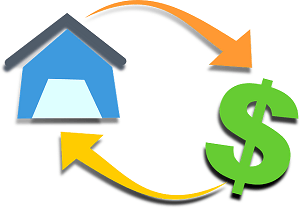 The first rule of wealth creation is to spend less than you earn. The result is extra money you can save and put to work. When choosing between whether to pay off debt or invest, what’s the best use of your money?
The first rule of wealth creation is to spend less than you earn. The result is extra money you can save and put to work. When choosing between whether to pay off debt or invest, what’s the best use of your money?
Both play a role in a smart financial plan. But basic math says – whatever gives the best return on your money. To simplify things, here’s a formula for dealing with this question.
- Get that 401k match
- Pay off highest interest debt first
- Pay off short-term over long-term debt
- Refinance to lower rates when possible
- Extra money towards debt is a guaranteed return every time
I’ll explain below.
Borrowing From Your Future Self
Debt allows you to borrow from your future self. It lets buy things by spreading out the costs into the future. Put another way, debt increases your future expenses.
This works if you understand the consequences. You still have future bills to pay – things like food bills, utilities, and insurance don’t go away. Debt adds past bills too. You keep the spend less than you earn mantra when you don’t stick the future you with more expenses than you can handle.
You can keep this in check by paying off debt. Every extra dollar put toward debt lowers your balance, which lowers your interest costs, and frees up future earnings for more important uses. Things like vacations, nights out, and a cozy retirement get easier to reach, and less stressful, with less debt around.
Refinancing works in a similar way. Interest charged on a loan is an extra cost eating away at your income. A lower interest rate lowers those costs, letting your money go further while you pay off a loan.
When you have unspent money at the end of every month, you might as well put it to good use. Should you pay down debt or invest it?
The Best Return On Your Money
Debt, like investments, come with risks and rewards. Buying a home or a college education comes to mind. Or when you use credit cards for the points or miles and pay off the balance each month.
You want the best return possible for an acceptable amount of risk. Paying off debt fits that context. But how much can you earn vs paying off debt? Math says the higher return wins.
Here’s a quick example. Given a choice between paying off credit cards or saving, you might think saving has its advantages. That is, until you compare interest rates.
Savings account rates don’t come close to the interest charged by credit cards. It makes no sense to pay 20% interest for the opportunity to earn less than 1% on that savings account. No amount of math will say that’s a good deal.
Your best investment, in this case your debt, earns a guaranteed after tax risk free return equal to the interest rate on that loan. The extra money towards debt, pays down the balance, lowers the interest costs, and rewards you with a 20% return.
The best investment you’ll find has a no risk, guaranteed high return. The only one I know is a 401k match. It’s a guaranteed 50%+ return on your money. You won’t find a better investment than this. You start saving a small amount of money which you can add to once you free up more money later.
After that, investing in something like stocks might get you 7% over a long period. Any debt that costs you more than 7% should be paid off first – like credit cards and other high interest debt.
Returns on stocks aren’t guaranteed. Nor is it on a basket of stocks and bonds. For both, that return will fluctuate. It has risks. You might see a big return one year, nothing the next, or worse a loss. A guaranteed risk free return outweighs those risks over a few short years. Any short-term debt (five years or less) should be paid off next.
Without high interest and short-term debt, things change. The math gets harder. There’s probably student and home loans left. You need to weigh the risk/reward trade-off from opportunity cost, leverage, taxes, deductions, liquidity, and inflation.
Those risk averse might lean toward paying off debt, while the risk takers invest. Anyone caught in the middle could split the difference.
Still Not Sure, Turn the Question Around
Finally, if you’re still not sure what’s the best use of your money, ask yourself these questions:
- Would you borrow from your credit card to invest the money?
- Would you take out a home loan to invest the money?
The first is insane. There are benefits to the second. Ask any real estate investor about this. Leverage brings risk, with added rewards. But here’s something to think about. By not paying down your mortgage (or any debt), you’re essentially borrowing money to invest. Always weigh your options. How you answer the second question determines where you stand on the risks.
